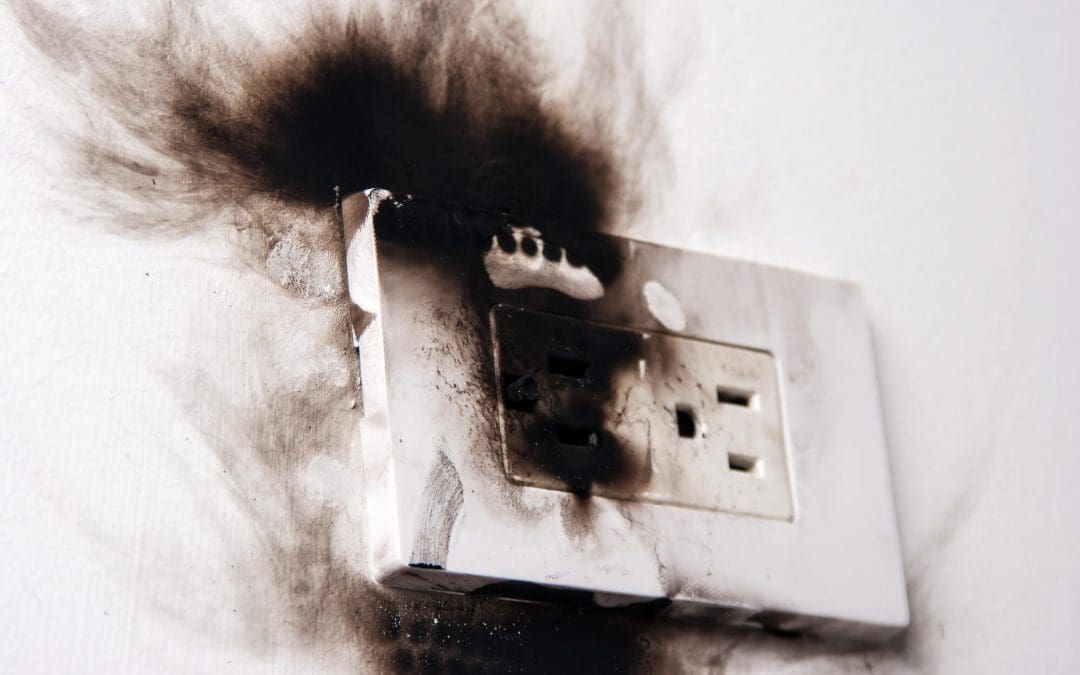Electrical safety is critical to maintaining a safe and functional home. Whether you’re a homeowner or renter, understanding the basics of electrical safety can help prevent accidents, fires, and costly damage. This guide will walk you through essential tips and precautions for electrical safety in the home so you and your property can stay safe.
The Importance of Electrical Safety in the Home
Electricity is integral to our daily lives, powering everything from appliances to lighting and heating systems. However, it can also pose significant risks if not handled properly. Electrical hazards, such as shocks, fires, and equipment damage, are often caused by faulty wiring, overloaded circuits, and improper use of electrical devices. You can protect your home and loved ones from these dangers by prioritizing electrical safety.
Identifying Common Electrical Hazards
Awareness of common electrical hazards is the first step in preventing accidents. Some typical dangers include:
- Faulty Wiring: Old or damaged wiring can lead to short circuits and fires. It’s crucial to have a licensed electrician inspect your home’s wiring, especially if it’s an older property.
- Overloaded Circuits: Plugging too many devices into a single outlet can overload circuits, causing them to overheat and potentially start a fire. Always spread out your electrical load and use surge protectors where necessary.
- Damaged Electrical Outlets: Cracked or broken outlets can expose wires, leading to shocks or electrical fires. Replace damaged outlets promptly and ensure they are securely attached to the wall.
- Inappropriate Use of Extension Cords: Extension cords are meant for temporary use. Relying on them for long-term power supply can lead to overheating and increased fire risk. Install additional outlets if needed.
Proper Installation and Maintenance are Critical for Electrical Safety
Proper installation and maintenance of electrical systems are vital for safety. When installing new electrical components, always hire a qualified electrician. They have the expertise to ensure that wiring and equipment are installed correctly and meet local safety codes.
Regular maintenance is equally important. Schedule periodic inspections to identify and address potential issues before they become serious. This includes checking for frayed wires, ensuring outlets and switches work correctly, and testing smoke detectors.
Safe Use of Electrical Appliances
Using electrical appliances safely is another crucial aspect of electrical safety. Follow these tips to minimize risks:
- Read Manufacturer Instructions: Always follow the manufacturer’s instructions for all appliances. Misuse can lead to accidents or damage.
- Unplug When Not in Use: Unplug appliances when they’re not in use to reduce the risk of overheating and to save energy.
- Avoid Water: Keep electrical appliances away from water to prevent shocks. This is especially important in kitchens and bathrooms.
- Use the Right Bulbs: Ensure you use the correct wattage for light fixtures. Using bulbs with too high a wattage can cause overheating and fires.
Childproofing Your Home
Childproofing your home is essential to prevent electrical accidents if you have young children. Use outlet covers to prevent children from inserting objects into outlets. Keep electrical cords out of reach and teach children about the dangers of electricity from a young age.
Knowing When to Call a Professional
While homeowners can manage many aspects of electrical safety, some situations require professional intervention. Contact a licensed electrician immediately if you notice frequent circuit breaker trips, flickering lights, or burning smells. Attempting to fix these issues on your own can be dangerous.
Home electrical safety is a shared responsibility that requires vigilance and proactive measures. Always consult a professional to ensure your home’s electrical safety when in doubt.
FAQs for Electrical Safety in the Home
Are there specific electrical safety tips for older homes?
Yes, older homes may have outdated wiring systems that don’t meet modern safety standards. It’s important to have the wiring inspected by a professional, upgrade to modern circuit breakers, and replace old outlets and switches. Ensure the home’s electrical system can handle current power demands and use safety devices like GFCI and AFCI outlets where appropriate.
Can I perform my own electrical repairs?
While homeowners can often do minor tasks like replacing a light switch or outlet cover, a licensed electrician should handle more complex repairs. Attempting to fix serious electrical issues on your own can be dangerous and may lead to further problems.
What are some signs that my electrical system needs an upgrade?
Signs that your electrical system may need an upgrade include frequent circuit breaker trips, outdated or insufficient outlets, visible frayed wiring, and dim or flickering lights. An electrician can assess whether your system meets current standards and if an upgrade is necessary.
What should I do if an outlet or switch feels warm to the touch?
A warm outlet or switch can indicate overheating and potential danger. Turn off the power to that outlet or switch at the breaker panel and consult a licensed electrician to inspect and repair the issue. Continuing to use a faulty outlet can increase the risk of electrical fires.
Rhode Island Real Estate Inspection Services provides home inspection services. If you’re buying or selling a home, contact us to request an appointment in Rhode Island.

